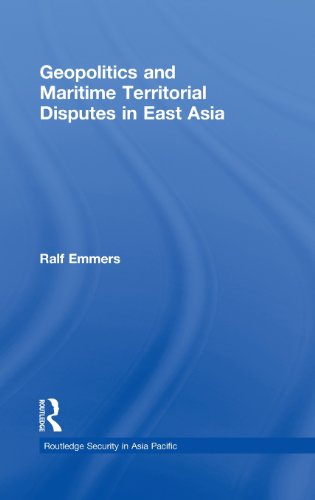

Most ebook files are in PDF format, so you can easily read them using various software such as Foxit Reader or directly on the Google Chrome browser.
Some ebook files are released by publishers in other formats such as .awz, .mobi, .epub, .fb2, etc. You may need to install specific software to read these formats on mobile/PC, such as Calibre.
Please read the tutorial at this link: https://ebookbell.com/faq
We offer FREE conversion to the popular formats you request; however, this may take some time. Therefore, right after payment, please email us, and we will try to provide the service as quickly as possible.
For some exceptional file formats or broken links (if any), please refrain from opening any disputes. Instead, email us first, and we will try to assist within a maximum of 6 hours.
EbookBell Team

0.0
0 reviewsGeopolitics is a crucial element in understanding international relations in East Asia, with major and medium powers competing for influence. This book examines geopolitics in East Asia, focusing in particular on its major, contentious maritime territorial disputes. It looks in particular detail at the overlapping claims between Japan, China and Taiwan over the Senkaku/Diao yu Islands in the East China Sea as well as the Paracel Islands claimed by China, Taiwan, and Vietnam and the Spratly Islands involving Brunei, China, Malaysia, the Philippines, Taiwan, and Vietnam in the South China Sea. The book offers a comparative study of the East and South China Seas by arguing that their respective circumstances are influenced by similar geopolitical considerations; factors such as territory, natural resources and power competition all impact on disputes and broader regional relations. It is precisely the interplay of these geopolitical forces that can lead to the rapid escalation of a maritime territorial dispute or reversely to a diffusion of tensions. The book considers how such disputes might be managed and resolved peacefully, despite the geopolitical conditions that can make co-operation on these issues difficult to achieve. Ralf Emmers examines the prospect for conflict management and resolution by identifying catalysts which may contribute to improving the climate of relations.